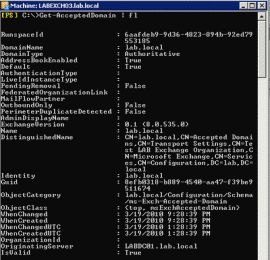
- #Powershell grep sed install
- #Powershell grep sed windows

\Alias.txt | select -first 10 # Equivalent to head -10 is a filename, replace that with your file name
Get-Content -Tail 2 # Display last two lines. This can be useful to pass the output to a text processor, like grep, sed, or. Get-Content # Equivalent to "cat" in Unix text The output is formatted as multiple lines of tab-separated string values. New-Item -ItemType File -Name 'TestFile' # Equivalent to "touch" in Unix. New-Item -ItemType Directory -Name 'TestFolder' # Equivalent to "mkdir" in Unix. Remove-Item -Recurse -Force # Eqivalent to "rm -rf" in Unix. cd $env:USERPROFILE # Equivalent to command "cd $HOME" in Unix. You have to pipe multiple commands together one command to transverse the directories, and one command to look for the pattern within each file found. #Powershell grep sed windows
Get-ChildItem -Filter "commands" -Recurse -File (Equivalent to find command in Unix) With the introduction of PowerShell, Windows has given us the grep functionality albeit with a much less finesse than the Linux equivalent. Get-ChildItem $env:USERPROFILE\Desktop | Sort-Object -Property LastWriteTime (Equivalent to ls -ltr in Unix). Get-Alias | out-host -paging # Equivalent to more. Get-Alias ls # Find the alias for ls command. Get-ChildItem # Equivalent to "ls" in Unix. Get-Location # Equivalent to command 'pwd' in Unix. Get-Item env: # show the environment variables. In a Windows PowerShell the alternative for grep is the Select-String command. The findstr command is a Windows grep equivalent in a Windows command-line prompt (CMD). Linux commands that can be used as such in PowerShell "cat, cd, chdir, clear, cls, copy, del, diff, dir, echo, erase, h, history, kill, lp, ls, mount, move, popd, ps, pushd, r, ren, rm rmdir, sleep, sort, tee, type, write, The grep command in Linux is widely used for parsing files and searching for useful data in the outputs of different commands. write-host -foregroundcolor red "Hello World". write-host "Hello World" # Famous hello world example. Clear dir *.txt # multiple commands separated by semicolon. Get-Help Get-Service -example # Get help for cmdlet Get-Service. Get-Command *-Service # find a list of cmdlets with service in their name. Get-Command -Noun service # to list all commands available to manage services. Get-Command -Verb Get # to list all cmdlets that uses the verb Get. $PSVersionTable.PSVersion # display PowerShell version. #Powershell grep sed install
Execute the following command to install Git: winget install -id Git.

Get-host | select-object Version # to display PowerShell version To get started, start an Administrator console: Right-click the Start button and choose Windows Terminal (Admin) if you are on Windows 11 or PowerShell (Admin) if you are on Windows 10.Also note that file paths do not need to be quoted in PowerShell unless theres a space or a special PowerShell character you need to escape. PowerShell uses "Verb-Noun" naming system Ok, its not much simpler, since you need to filter the lines that match first (akin to the grep and sed from before).






 0 kommentar(er)
0 kommentar(er)
